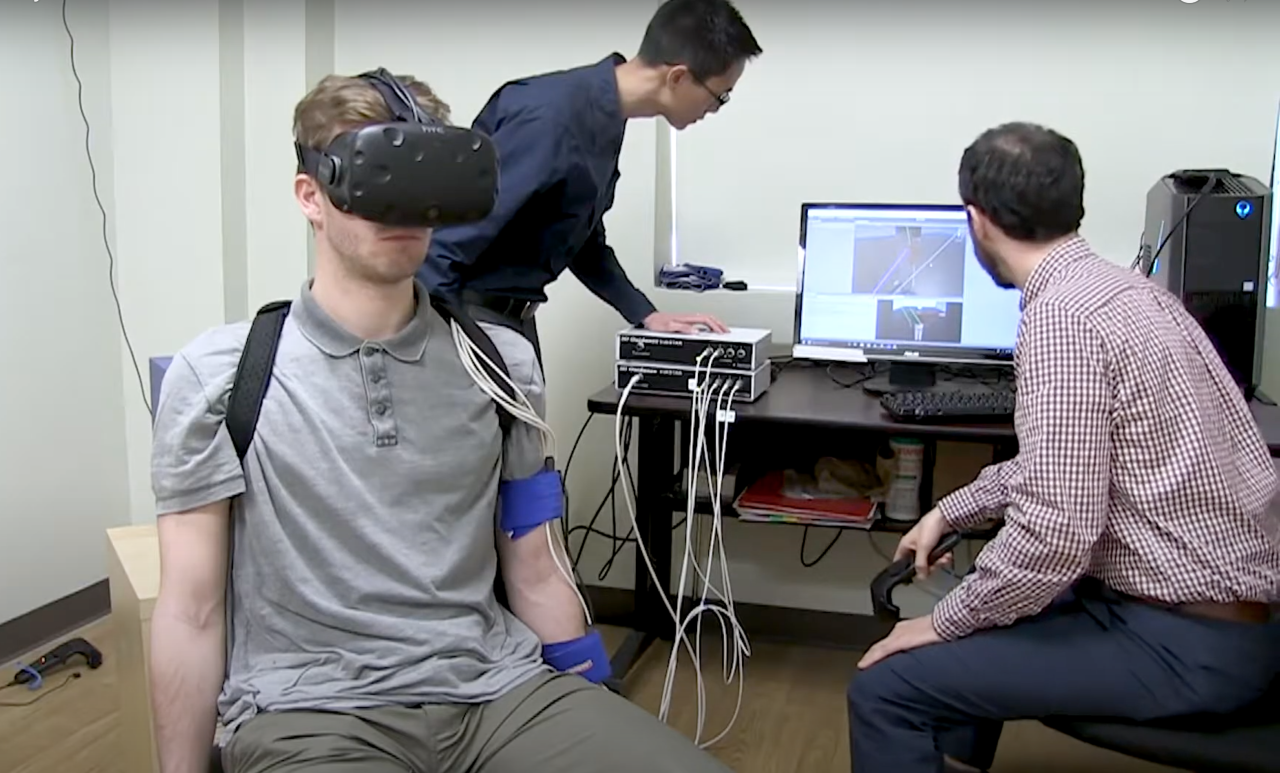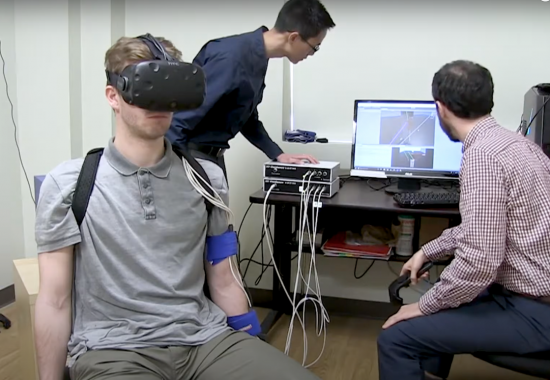
Moss Rehabilitation Research Institute (MRRI) scientists are at the forefront of research applying new technologies to developing therapeutic games for neurorehabilitation. MossRehab’s Accepting the Challenge blog recently published a three-part series on how research at MRRI and clinical care at MossRehab are leveraging therapeutic gaming to increase engagement and enhance rehabilitation.
Part 1 of the series provides an overview of how theories from neural and behavioral science are being applied game design for optimizing rehabilitation outcomes. Part 2 translates these principles from the lab to the clinic and describes how therapeutic games are currently being used in clinical care at MossRehab. Read more in Part 3 about the ongoing research projects that MRRI Scientists are involved in to develop the therapeutic games of the future.
The third article features a number of current projects spanning several MRRI research laboratories. One of these is a collaborative effort involving Dylan Edwards, PhD, Laurel Buxbaum, PsyD, Aaron Wong, PhD, Shailesh Kantak, PT, PhD, and collaborators from other leading research institutions. They are developing a new therapeutic gaming system for motor recovery after stroke, called Mindpod Dolphin. Dr. Buxbaum also describes two projects that use virtual reality games for assessment and treatment. Dr. Edwards discusses his work on NeuroMotion, a portable gaming console from TRCare, Inc. This console is designed for patients who experienced a stroke to assist them in recovering upper extremity functions in their own homes. Dr. Rabinowitz describes how her work on mobile technology in brain injury rehabilitation is enhancing our ability to promote adherence to home therapy and goal attainment.
These research projects demonstrate how MRRI scientists are using theory-driven research to develop novel rehabilitation approaches to help improve the lives of individuals with neurological disabilities.
Check out the whole series on MossRehab’s Accepting the Challenge blog.


4 comment on “Improving Neurorehabilitation by Incorporating Gaming Theory and Technologies”